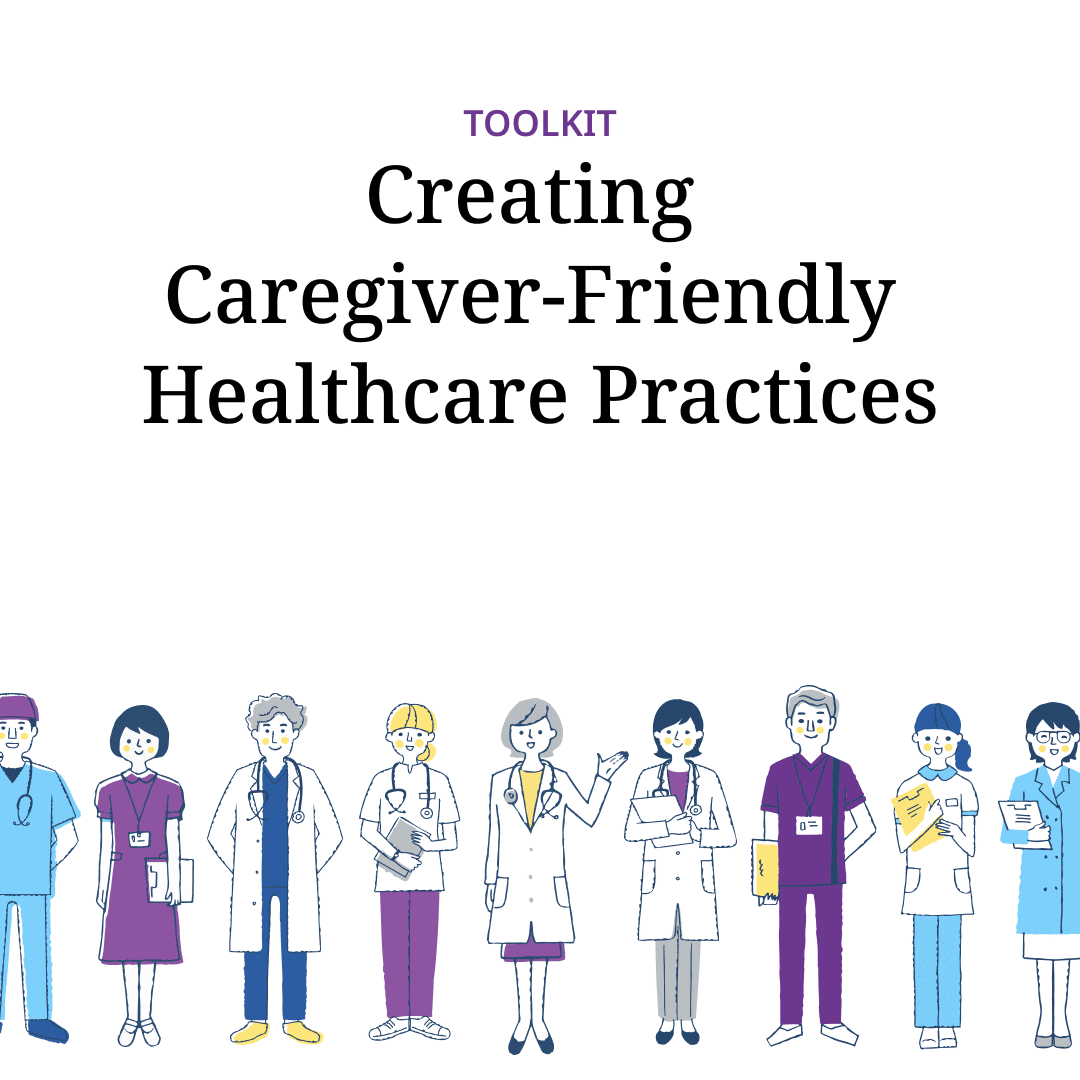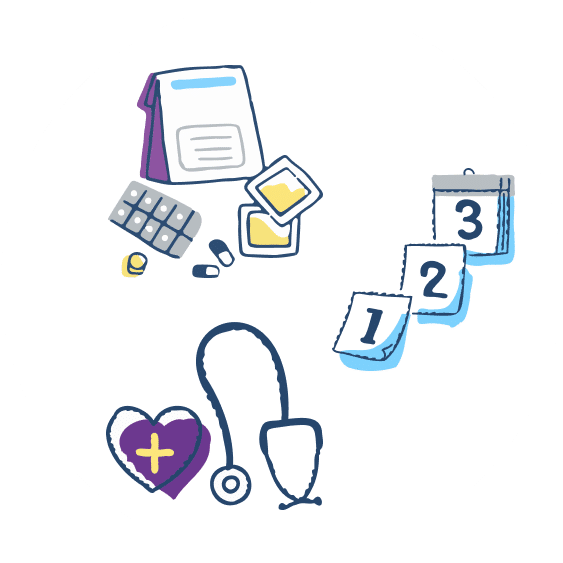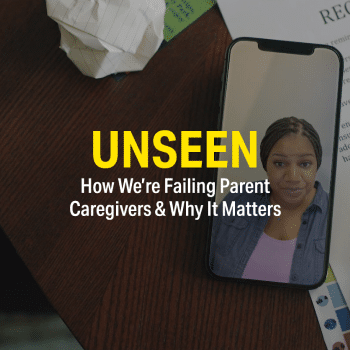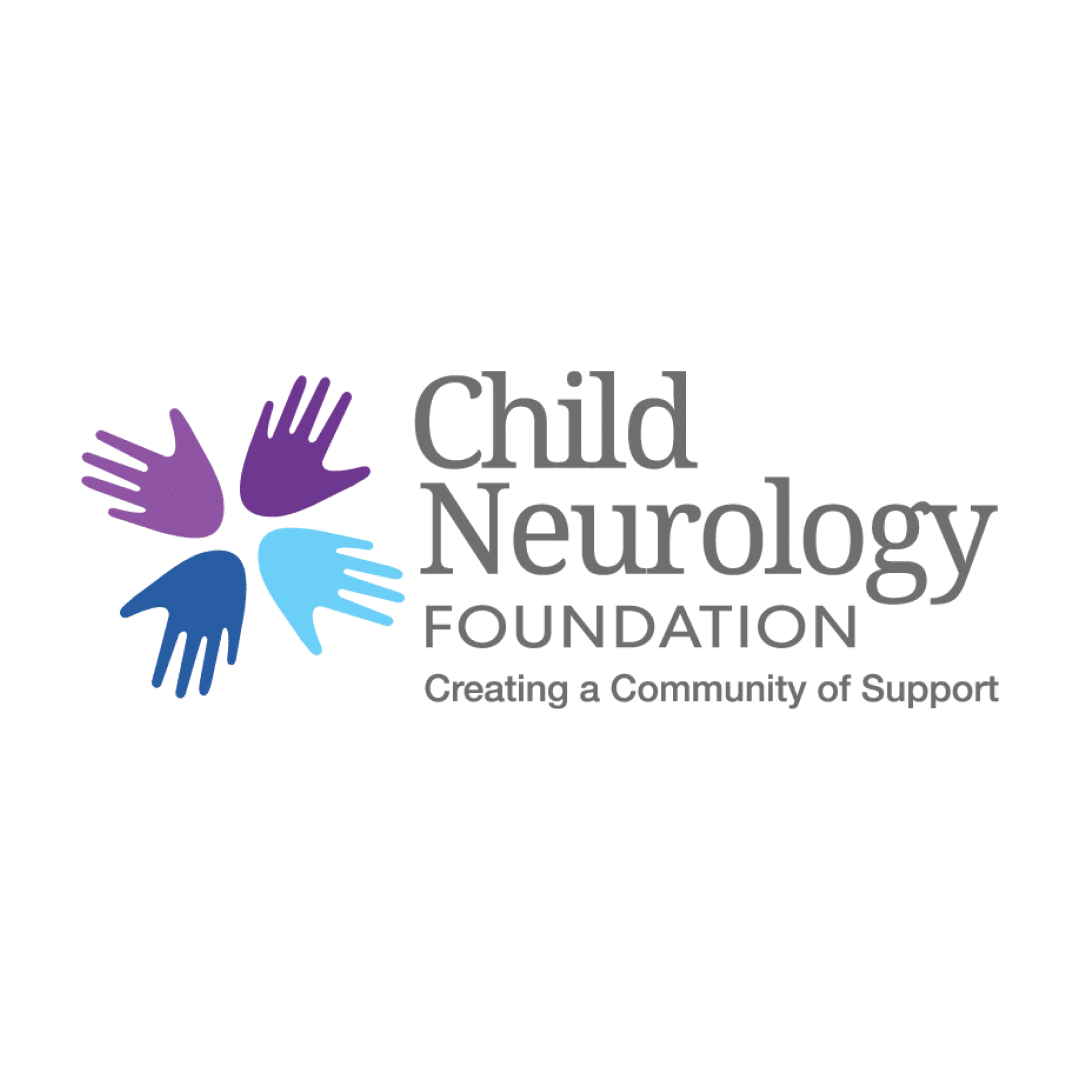
Explore the Caregiver-Friendly Healthcare Practices Toolkit
Learn how healthcare providers can improve outcomes by recognizing and equipping caregivers.
Caregiver-Friendly Healthcare Practices Toolkit
Created in partnership with

Healthcare clinicians work hard to ensure their clients have the best chance for a positive outcome. Sometimes, this means utilizing outside help and resources. There are lots of independent agencies, nonprofits, and other helping hands ready to assist clients and their caregivers during times of need. One just has to know where to look. Read on for strategies on how to ensure your practice is ready to connect clients with important, potentially life-saving resources.
Plenty of people look “fine” on the outside, even if they are really struggling. It’s important to assess mental health regularly—for clients AND their caregivers. There are many screening tools out there. Simply find the one that works for you and put it to use! Early intervention allows you to make the necessary referrals and connect families with valuable resources.
Compile local resource lists for clients and their families. Educate staff members so they can help spread the word, too. Handing out a pamphlet or a list of websites may seem like a small gesture. But for stressed-out families, having access to these resources can make all the difference.
Caregivers often find themselves navigating appointments, follow ups, health insurance and paperwork for many different doctors at once. It’s a lot to keep up with. Finding ways to simplify this process makes a huge difference in the daily lives of caregivers. Whether it’s taking the time to share office notes with other clinicians or making a quick call to coordinate treatment strategies, every action matters.
Consider ways to improve care coordination with other clinicians, therapists, and specialists. The Child Neurology Foundation (CNF) has a list of care coordination resources for clinicians, including this toolkit created by the Louisiana Office of Public Health, and this curriculum from Boston Children’s Hospital.
Over time, the work of caregiving takes a toll on physical, mental, and emotional health. True respite is necessary for any caregiver, but taking time for rest and self-care is a luxury many caregivers feel they don’t have access to. Caregiving is often a 24/7 job. There are many barriers to obtaining respite, including financial limitations, the need for complex medical care, and a lack of personal, supportive relationships.
How can you help your caregivers get some respite? Identify local, state, and federal resources, such as the ARCH National Respite Network, that connect caregivers with respite opportunities. Clinicians could also connect caregivers with a nonprofit like 99 Balloons, which helps families locate local, short-term respite options.
CNF also has a respite care notebook available for download. It’s a document that allows caregivers to list the needs and important medical details of their dependents — all in one place! The goal is to give incoming respite caregivers everything they need to know to provide excellent care.
There’s no guide for navigating the American healthcare system. Caregivers and their families are often forced to figure out how it works for themselves. Frequent conversations with clinicians, insurance companies, schools, and employers may be required. It takes a lot of time and energy. Clinicians have a deeper understanding of the complexities of the healthcare system, and sharing these insights with caregivers can make their job a lot easier.
Take the time to explain the hidden realities that may complicate or delay treatment, such as insurance requirements, prior authorizations, the need for referrals, etc. Give your caregivers this new visit toolkit from CNF to help them feel confident and prepared when meeting a new clinician for the first time. For clients who are transitioning out of pediatrics and into the adult healthcare sphere, CNF also offers a Transition of Care Program to help caregivers get started.
Something that isn’t often talked about is how caregivers may be required to manage challenging behavior. Some medical conditions will present with behaviors that are not well managed using traditional techniques. Safety is paramount, and caregivers need to know to prevent injury to themselves and their dependents.
The CNF has lots of resources to help caregivers manage challenging behaviors. From learning age-specific parenting techniques to improving communication, there’s plenty of helpful tips and tricks.
Depending on the specialty, your clinical practice might see a lot of clients with the same disorder. Gather condition-specific resources for the medical diagnoses you see most commonly. Many diseases have their own foundations, nonprofits, and other support groups. Not only are these resources a great place to find information, it can also make caregivers feel like they are part of a community.
CNF has its own special hub for people with epilepsy, as well as a glossary of neurologic conditions. It can be a great place to start the education process.
Whether you’ve been a clinician for one year or thirty, there will always be new medical discoveries. Update your resource list periodically as evidence-based practice changes. Be generous with your knowledge. Clients and their caregivers are often hungry for it, even if they’ve scoured every corner of the internet. There’s a reason the medical profession is one of the most trusted in America: your thoughts and recommendations really matter to the people you care for.
Here are ways you can get started:

Learn how healthcare providers can improve outcomes by recognizing and equipping caregivers.

The “Unseen” documentary gives an unfiltered, honest glimpse into the lives of caregivers and their families.

The Child Neurology Foundation connects partners from all areas of the child neurology community so those navigating the journey of disease diagnosis, management, and care have the ongoing support from those dedicated to treatments and cures.

Sign up to get notified about upcoming screenings, new bonus content releases, and get a 10% off coupon for our mech store!